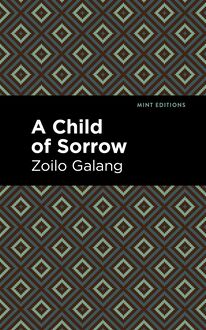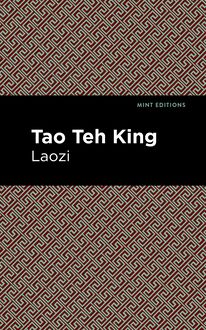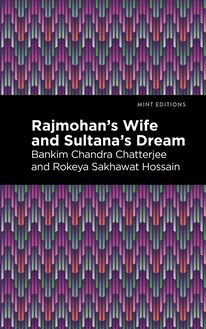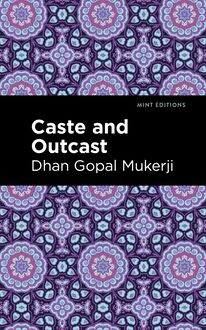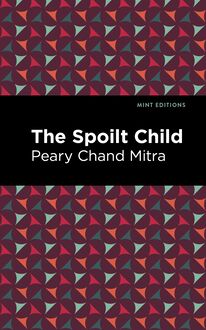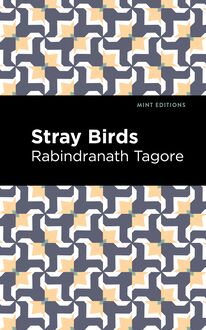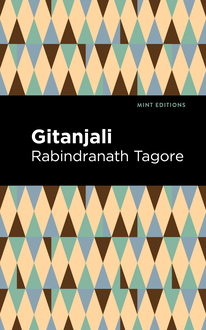-
 Univers
Univers
-
 Ebooks
Ebooks
-
 Livres audio
Livres audio
-
 Presse
Presse
-
 Podcasts
Podcasts
-
 BD
BD
-
 Documents
Documents
-
- Cours
- Révisions
- Ressources pédagogiques
- Sciences de l’éducation
- Manuels scolaires
- Langues
- Travaux de classe
- Annales de BEP
- Etudes supérieures
- Maternelle et primaire
- Fiches de lecture
- Orientation scolaire
- Méthodologie
- Corrigés de devoir
- Annales d’examens et concours
- Annales du bac
- Annales du brevet
- Rapports de stage
La lecture à portée de main
Vous pourrez modifier la taille du texte de cet ouvrage
Découvre YouScribe en t'inscrivant gratuitement
Je m'inscrisDécouvre YouScribe en t'inscrivant gratuitement
Je m'inscrisEn savoir plus
Vous pourrez modifier la taille du texte de cet ouvrage
En savoir plus

Description
Seen and Unseen: Or, Monologues of a Homeless Snail (1897) is a collection of poems by Yone Noguchi. Written only three years after his arrival in San Francisco, these poems capture the emotions of a young man far from home. Fluent in English and adept with the open, flowing style of free verse, Noguchi remains unique in his vision of earthly life.
Noguchi’s poems are songs of light and shadow, in tune with animals, seasons, spirits, and complex emotions. His words are leaves, his thoughts are curtains knocking “with their shadowy hands” upon his door. His “[p]oetry begins with the tireless songs of the cricket, on the lean gray haired hill, in sober-faced evening. / And the next page is Stillness.” Alone in a foreign country, he finds solace in the strange music of nature, hope in the words he can make of it. He envisions himself asleep in the depths of a canyon, writing letters that will never arrive, longing for the crickets to sing. “The homeless snail climbing up the pillow, stares upon the silvered star-tears on my eyes! […] Oh, I am alone! Who knows my to-night’s feeling!” He asks, the homeless snail asks, and his reader longs to answer.
With a beautifully designed cover and professionally typeset manuscript, this edition of Yone Noguchi’s Seen and Unseen: Or, Monologues of a Homeless Snail is a classic of Japanese American literature reimagined for modern readers.
Sujets
Informations
| Publié par | Mint Editions |
| Date de parution | 27 avril 2021 |
| Nombre de lectures | 0 |
| EAN13 | 9781513287515 |
| Langue | English |
Informations légales : prix de location à la page 0,0300€. Cette information est donnée uniquement à titre indicatif conformément à la législation en vigueur.
Extrait
Seen and Unseen
Or, Monologues of a Homeless Snail
Yone Noguchi
Seen and Unseen: Or, Monologues of a Homeless Snail was first published in 1897.
This edition published by Mint Editions 2021.
ISBN 9781513282497 | E-ISBN 9781513287515
Published by Mint Editions®
minteditionbooks.com
Publishing Director: Jennifer Newens
Design & Production: Rachel Lopez Metzger
Project Manager: Micaela Clark
Typesetting: Westchester Publishing Services
C ONTENTS I NTRODUCTION P ROLOGUE I. I COME BACK TO ME II. W HERE WOULD I GO ? III. T HE BRAVE UPRIGHT R AINS IV. O , MATCHLESS M ISTRESS M OON V. I S THIS W ORLD THE SOLID B EING ? VI. S ABRE-CORNERED W INDS BLOW VII. A LONE VIII. A H, IT WAS R AIN! IX. T O AN UNKNOWN P OET X. A LAS, N OTHING ! XI. D REAMY P EACE DWELT WITH ME XII. O N THE MIDNIGHT G ARDEN XIII. D RANKEST THOU SNOWY D EWS XIV. S LIDING THROUGH THE W INDOW XV. W HAT ABOUT MY S ONGS ? XVI. A T N IGHT XVII. I RECALL MY D REAM XVIII. A H, MY B ANANA T REE ! XIX. L IKE A P APER L ANTERN XX. W HERE IS THE P OET ? XXI. T HE INVISIBLE N IGHT XXII. M Y P OETRY XXIII. D ESTINY A RRIVES XXIV. T HE G ARDEN OF T RUTH XXV. A LONE IN THE C ANYON XXVI. S EAS OF R EVERIE XXVII. I DELIGHT IN THE S HADOW XXVIII. T HE B OUGH- W IND BLOWS ! XXIX. A M I LONESOME ? XXX. M Y LONELY S OUL XXXI. I NTO THE P LACE XXXII. S EAS OF L ONELINESS XXXIII. C HANGES AFTER C HANGING XXXIV. C HILDISH P LAY XXXV. T HE R IPPLES KNOW ! XXXVI. H USH,—WHOSE S OBS ? XXXVII. I AM A S HADOW XXXVIII. H OW NEAR TO F AIRYLAND ! XXXIX. A H, WHO SAYS SO ? XL. W HAT SAYS THE S ILENCE ? XLI. T HE D ESERT OF “N O M ORE ” XLII. A N IGHT IN J UNE XLIII. E TERNAL D EATH XLIV. D IFFERENCES XLV. T HE S HADOW OF THE T REES XLVI. H IDING IN THE M IST XLVII. T HE N IGHT- L YRE ECHOES XLVIII. T HE S UMMER’S LEAN F ACE XLIX. I AM WHAT I LIKE TO BE L. M Y U NIVERSE
I NTRODUCTION
I would have you think of him as I know him, a youth of twenty years, exiled and alone, separated from the mother, far away, abandoned by his native land and Time, a recluse and a dreamer, in love with sadness, waiting for the time to come to do his part in recalling the ancient glory of the great poets and philosophers of his land; watching, calm-eyed and serious, the writers of this new world, to see if the old words can live in the Western civilization; and if the sheeted memories of the Past may be re-embodied in our English tongue.
In the editing of these poems, I have colaborated with M R. P ORTER G ARNETT, whose sympathetic assistance has lightened a responsibility, that only our regard for Y ONE N OGUCHI might authorize; and if our hints and explanations of idiom and diction have aided him and if our hands, laid reverently upon his writings, have in some places cleared a few ambiguous constructions, how generously has he repaid the debt! We gave him but the crude metal of the language and he has returned it to us, minted into golden coin. He has honored our native tongue by his writings; he has lifted the veil of convention and discovered fresh beauties and unexpected charms in our speech. And so, when I try to offer some fitting introduction to the writings of my friend, his words come back to me; his virile phrases and unworn metaphors best paint his moods. What need to introduce him, indeed?—has he not in these pages spoken for himself?
For here in these Monologues, he has written with absolute sincerity and simplicity, his very soul’s-journal, in nocturnes set to the music of an unfamiliar tongue, in form vague as his vague moods. Though ever unknowing of Self, he has given to these songs the truest lyric quality;—in his lonely cabin, even yellow-jackets-abandoned— haunting the midnight garden— alone in the dream-muffled canyon; at shadeless noon, sunful-eyed,— in the sober-faced evening— wrapped in the warm darkness of the invisible night— shrouded in the gray mystery of the mist— under the brave, upright rains, or swept by the boneless winds;— he has revealed himself a visitor in this sense-world, hid in a corner of the Universe, delighted in his dreams and reveries, with its shadows, its audible silence, and the poetic garments of its clouds,—disdainful of its Names, its childish play and the dusty manners of the city, lonely in Being-formed Nothing, his soul beating against the sadness-walled body, seeking for a casement to flit out.
So much for the journal and portrait of the man, whose shy soul roams lonelily out, picked by the incessant tear-rains, his way lost in misty doubtfulness. So much for the subjective aspect of his visions of Nature, and his life of gentle melancholy. But of those dreams within the Dream, of the “Being”-fruit of his “Nothing” orchard, of his rivulet’s unknown chatter,— how many shall understand? For his is the voice of the Occident speaking from the iron-bodied yore-time, where there is place without Place, and though he would give the Word to the word, not less, not more than the Word itself,— these, to many heedless ears, shall be but the unintelligible frogs’ rain-songs,—the tear-cries of the crickets on the lean, gray-haired hill. And with his own whimsical despair, we may say, “O Homeless Snail, for my sake, put forth thy honorable horns!”
Still it may be that some may read between the lines and find the doorless entrance to his philosophy. With him, they may gaze through the ripples, into the mileless bottom of the mirrory brook, and behold his strange shadowed world. And seeing its mysteries, they too may wonder whether the bird. that flies upright into the atom-eyed sky,— or its reflected figure that sinks down into the roomy halls beneath the surface, is the real bird. They too may stir the waves of reverie, awakening thereby some unknown motion in that other-world, or with their eyes dimmed by mist-pains, and fingers all bloodied by rose-thorns, find in his corridor of Poetry, a refuge from the storms of vanity-winged Hope.
Yet it were but partly true to call this symbolism. It is too vague, too subtly suggestive for that. Such moods and nuances of feeling as these are not translatable into the logical and definite processes of Occidental thought. And though on the other hand, they are not distinctively Japanese in sentiment or in art, yet one might illustrate their intangible de
-
 Univers
Univers
-
 Ebooks
Ebooks
-
 Livres audio
Livres audio
-
 Presse
Presse
-
 Podcasts
Podcasts
-
 BD
BD
-
 Documents
Documents
-
Jeunesse
-
Littérature
-
Ressources professionnelles
-
Santé et bien-être
-
Savoirs
-
Education
-
Loisirs et hobbies
-
Art, musique et cinéma
-
Actualité et débat de société
-
Jeunesse
-
Littérature
-
Ressources professionnelles
-
Santé et bien-être
-
Savoirs
-
Education
-
Loisirs et hobbies
-
Art, musique et cinéma
-
Actualité et débat de société
-
Actualités
-
Lifestyle
-
Presse jeunesse
-
Presse professionnelle
-
Pratique
-
Presse sportive
-
Presse internationale
-
Culture & Médias
-
Action et Aventures
-
Science-fiction et Fantasy
-
Société
-
Jeunesse
-
Littérature
-
Ressources professionnelles
-
Santé et bien-être
-
Savoirs
-
Education
-
Loisirs et hobbies
-
Art, musique et cinéma
-
Actualité et débat de société
- Cours
- Révisions
- Ressources pédagogiques
- Sciences de l’éducation
- Manuels scolaires
- Langues
- Travaux de classe
- Annales de BEP
- Etudes supérieures
- Maternelle et primaire
- Fiches de lecture
- Orientation scolaire
- Méthodologie
- Corrigés de devoir
- Annales d’examens et concours
- Annales du bac
- Annales du brevet
- Rapports de stage

